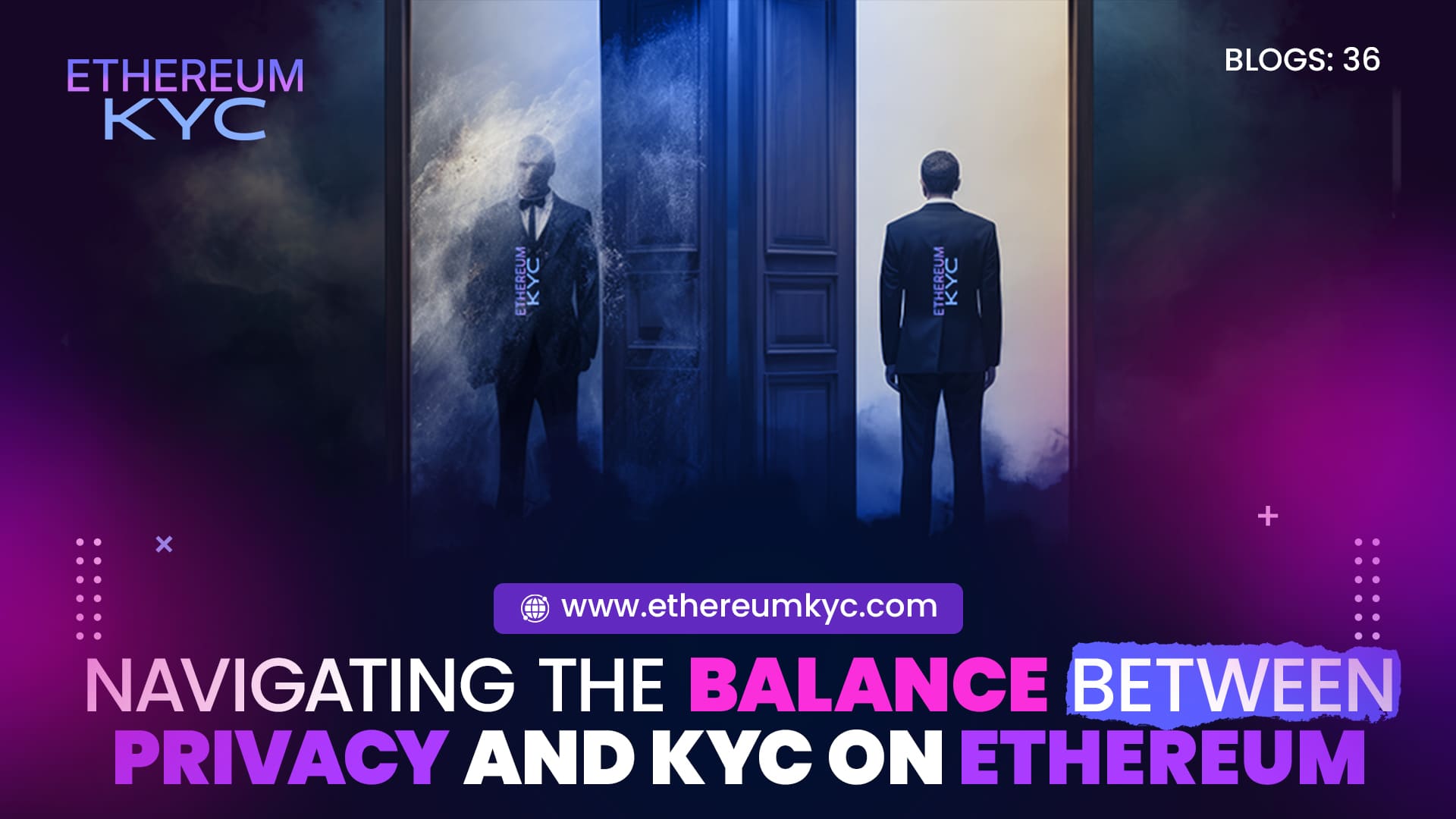April 11, 2025
Navigating the Balance Between Privacy and KYC on Ethereum
Content:
In the world of decentralized finance and tokenization, privacy and compliance often seem at odds. On Ethereum, where transparency is built into the system, finding the right balance between user privacy and Know Your Customer (KYC) requirements is a critical challenge for projects aiming to scale globally. Striking this balance is essential for protecting users’ rights while staying regulatory compliant.
Why Privacy Matters in Ethereum
Ethereum’s open ledger exposes every transaction to public view. While this supports transparency and decentralization, it also raises concerns about financial privacy, personal security, and freedom from surveillance—especially for users who value anonymity.
The Growing Importance of KYC
As Ethereum adoption grows, regulators demand that certain types of projects—especially those dealing with token sales, stablecoins, and financial products—implement KYC procedures to verify the identities of users and prevent illegal activities like money laundering.
How Projects Are Balancing Privacy and Compliance
- Selective Disclosure: Using cryptographic proofs (like zk-SNARKs), users can verify their eligibility (e.g., age or jurisdiction) without revealing full identity details.
- Decentralized Identity (DID): Solutions like DID frameworks let users manage their identity and selectively share data on a need-to-know basis.
- Privacy Layers: Some platforms are building privacy-focused layers atop Ethereum, combining regulatory compliance with transactional confidentiality.
Conclusion
Privacy and KYC are not mutually exclusive on Ethereum. With emerging technologies and careful system design, projects can protect user privacy while still meeting compliance standards. Navigating this balance is key to creating a scalable, user-respecting Web3 ecosystem.





